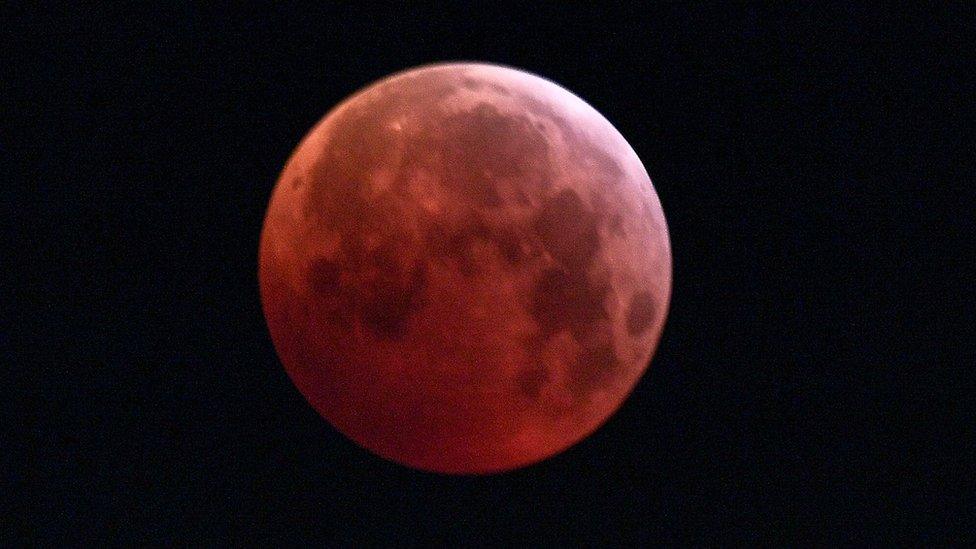'Super blood wolf moon' meteoroid strike photographed
- Published
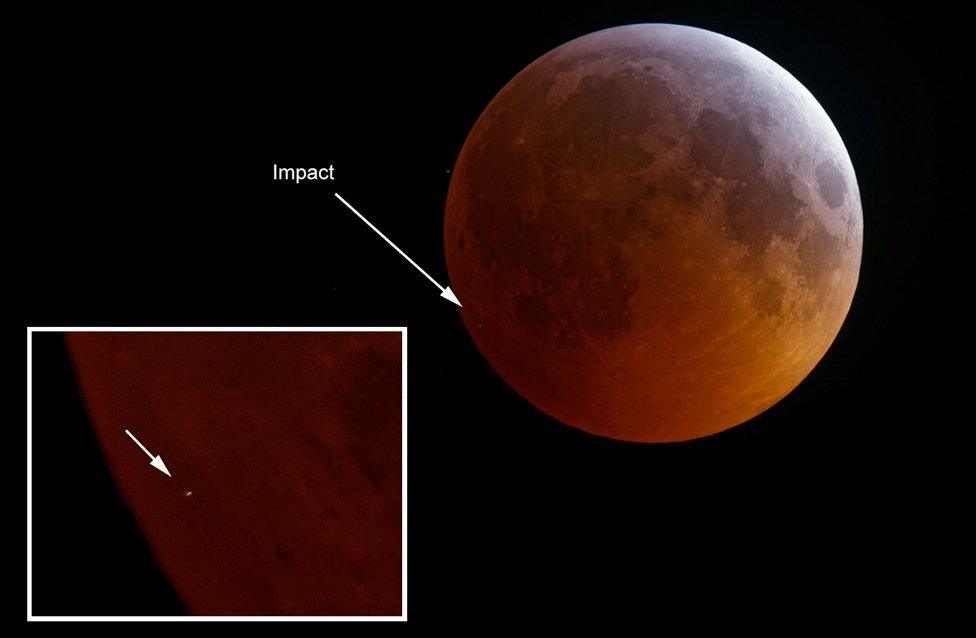
The odds of it happening in an area of darkness were "astronomical"
A photographer has said capturing the rarely seen sight of a meteoroid crashing into the Moon was "just beautiful".
The impact became visible during the spectacle known as the "super blood wolf moon" on Monday.
Jamie Cooper said it was "just pure luck I managed to catch it".
Astronomer Tom Kerss, from the Royal Observatory Greenwich, said the timing of the strike, when many cameras were trained on it, made it a "real first".
The flash captured in the image is the release of energy from the impact of the object hitting the moon's surface and experts believe it was one of two impacts on the night.
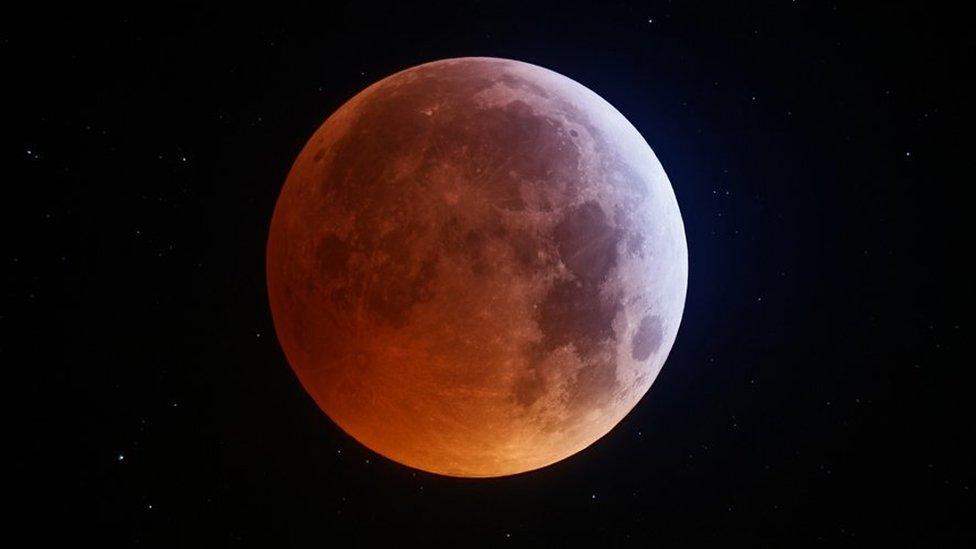
More stars were visible around the Moon during the reduced light caused by the eclipse
Mr Kerss added: "The first impact was at 04:41 GMT, the second one, yet to be confirmed, was at 04:43 GMT.
"To have an event when astro-photographers have captured it and for it to be seen on multiple live stream is a real first."
Dr Emily Drabek-Maunder, also from the Royal Observatory Greenwich, said: "This is such an exciting image and it is amazing that this serendipitous impact happened during a lunar eclipse while so many people were watching the Moon."
Allow X content?
This article contains content provided by X. We ask for your permission before anything is loaded, as they may be using cookies and other technologies. You may want to read X’s cookie policy, external and privacy policy, external before accepting. To view this content choose ‘accept and continue’.

Mr Cooper, from Northamptonshire, said he "probably took about 30 images on the night over the space of about three hours to photograph the whole eclipse sequence".
"It was just pure luck I managed to catch it, it was taken on a four second exposure and I just happened to press the shutter at the right time," he added.
The next total lunar eclipse is expected in two years, on 26 May 2021.
- Published21 January 2019
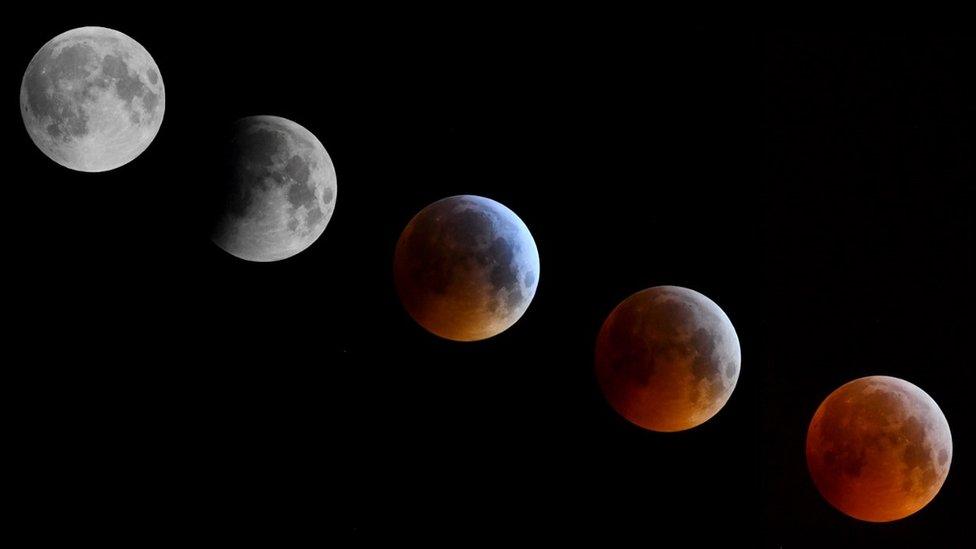
- Published21 January 2019
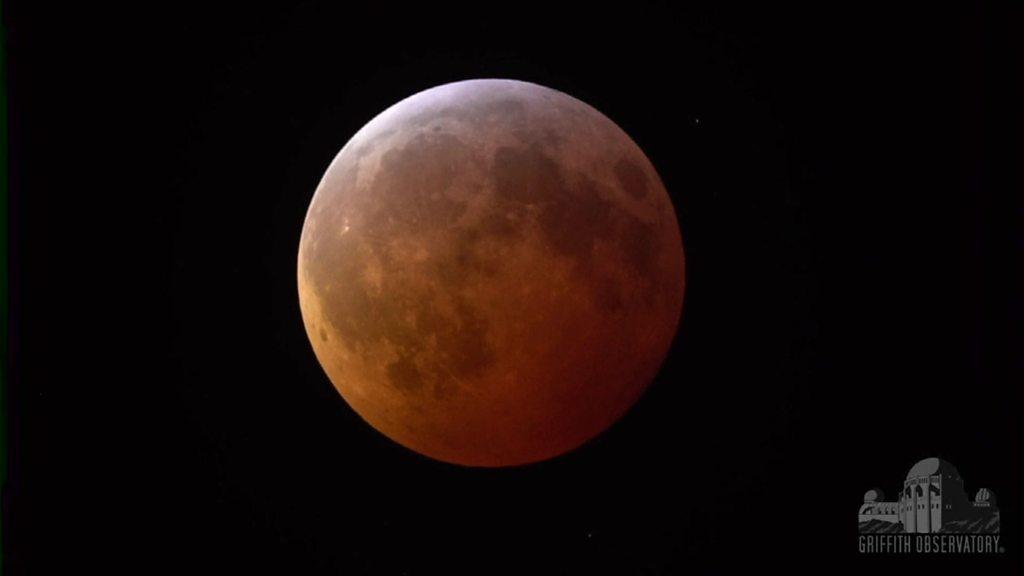
- Published21 January 2019
